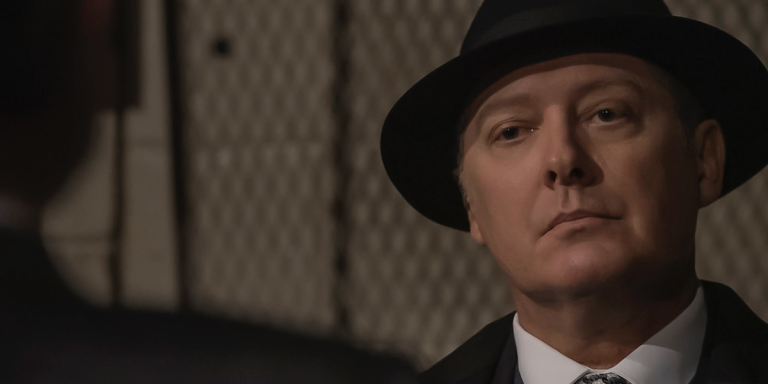Read the Excerpt: You Can Trust Me by Wendy Heard
 I learned to pick a pocket when I was about eight.
I learned to pick a pocket when I was about eight.
I was panhandling with my mother and two of her interchangeably bohemian friends at the Embarcadero in San Francisco. While they sat cross-legged beside a handprinted sign that read, “The light in me honors the light in you,” my job was to scope out the tourists and approach likely donors with a sad little wave. “I’m sorry, excuse me, I was just wondering if you could spare any change for my mother and me,” I’d say in a trembling, timid voice, like this was the first time I’d done this, like we were embarrassed to be reduced to panhandling.
I approached this one woman, a middle-aged white lady with her husband in tow, thinking she looked like someone’s grandma and would probably be a good mark. Adult me would warn kid me— this type of woman is not to be approached.
“I’m so sorry, but could you spare any change for my mom and me?” I asked, smiling sheepishly and presenting my collection tin.
She stopped walking and stared down at me, lips pinching together. “Where is your mother?”
Thinking she wanted proof that I wasn’t alone, I pointed back to where my mom was in Buddha pose by her namaste sign, eyes closed, lips curved upward in a faint smile. She was meditating, focusing on manifesting what we needed today, which was two hundred dollars. Her friends languished beside her, sharing a joint and calling out “Peace” to the passersby.
The fake grandma took me by the arm, marched me through the throngs of tourists, and presented me to my mother. “Excuse me. Is this your daughter?”
Her hazel eyes flew open and flicked between me and the lady holding my arm. “She is,” my mom replied, ever calm.
“How dare you have her begging for your drug money! What is wrong with you? I should call the police.”
I felt my stomach drop out of my gut and onto the floor. The police were our biggest fear. My mom’s friends exchanged a worried glance, but she just cocked her head and studied the woman.
“We’re truly sorry to have upset you,” my mom said. “She offered to help. I thought it was a nice gesture, and I felt badly discouraging it.” She could be like this: well spoken, reminding me that she’d gone to school, something she didn’t make me do. “The world is your school,” she always told me, but the world wasn’t going to teach me to read, so I stole books and learned from them on my own.
The woman glowered down at her. “She should be taken away from you. You can’t raise a child like this.”
Panicked and angry, I wrenched my arm out of her grip. In the twisting motion, I noticed the twenty-dollar bill sticking partway out of the back pocket of her khaki pants, folded into a store receipt.
My mother stood, the soft cotton of her long skirt billowing around her ankles. She was a lovely woman, her honey-colored hair wavy to her waist, her light tank top silky around her loose breasts. “May I pray for you?” she asked. “We’re going through a hard time, but it seems like you may be going through something as well.”
The woman’s face was shocked, hurt, and then something totally unexpected—tears sprang to her eyes and her face flushed bright red.
“You may not,” she hissed. She turned her back and stormed off.
With no adults looking, my hand snaked over, pinched the twenty, and as she walked away, it slipped out of her pocket and into my hand.
And so I learned my first lesson about pickpocketing: The target must be distracted, and the friction of the item leaving their pocket must blend in with the friction they feel from movement. Pickpocketing requires empathy, knowing how it feels to be in someone’s body, even the micro things like how their pants fit around the hips, how their purse slings across the chest.
My mom didn’t notice. She was sitting back down, arranging her skirt.
I palmed the twenty. I could hide it, buy things with it, save it for the inevitable rainy day when our van broke down in the middle of nowhere and my mom decided to suddenly realize that the universe does not in fact provide things like mechanics.
I shoved it deep into my pocket. It was mine.
Excerpted from YOU CAN TRUST ME, Copyright © 2023 by Wendy Heard. Published by Bantam Books, an imprint of Random House, a division of Penguin Random House LLC, on June 13, 2023. All rights reserved.
Discover the Book
About the author: Wendy Heard is the author of suspense and thrillers for adults and teens, including The Kill Club, She’s Too Pretty to Burn, and Dead End Girls. Heard has spent most of her life in Los Angeles, loves all things vintage, and has a collection of thrillers and adventure books from the ’80s.
Summer and Leo would do anything for each other. Inspired by the way each has had to carve her place in a hostile and unforgiving world, and united by the call of the open road, they travel around sunny California in Summer’s tricked-out Land Cruiser. It’s not a glamorous life, but it gives them the freedom they crave from the painful pasts they’ve left behind. But even free spirits have bills to pay. Luckily, Summer is a skilled pickpocket, a small-time thief, and a con artist—and Leo, determined to pay her own way, has learned a trick or two.
Eager for a big score, Leo catches in her crosshairs Michael Forrester, a self-made billionaire and philanthropist. When her charm wins him over, Leo is rewarded with an invitation to his private island off the California coastline for a night of fabulous excess. She eagerly anticipates returning with photos that can be sold to the paparazzi, jewelry that can be liquidated, and endless stories to share with Summer.
Instead, Leo disappears.
On her own for the first time in years, Summer decides to infiltrate Michael’s island and find out what really happened. But when she arrives, no one has seen Leo—she’s not on the island as far as they know. Plus, there was only one way on the island—and no way off—for the coming days. Trapped in a scheme she helped initiate, could Summer have met her match?
By clicking 'Sign Up,' I acknowledge that I have read and agree to Hachette Book Group’s Privacy Policy and Terms of Use





